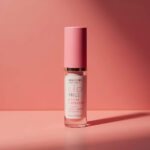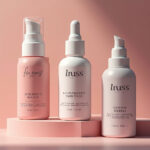Understanding Hyperpigmentation
Hyperpigmentation is a common skin condition that causes patches of skin to become darker than the surrounding areas. This happens due to an excess production of melanin, the pigment responsible for skin color. While hyperpigmentation is generally harmless, it can affect one’s confidence and self-esteem. Whether it’s caused by sun exposure, hormonal changes, or acne scars, there are effective treatments and tips to help manage and reduce its appearance.
Common Causes of Hyperpigmentation
Before diving into treatments, it’s essential to understand the various causes of hyperpigmentation. Here are some of the most common factors:
- Sun Exposure: UV rays from the sun can trigger melanin production, leading to sunspots and uneven skin tone.
- Hormonal Changes: Conditions like pregnancy and the use of birth control pills can cause melasma, a type of hyperpigmentation.
- Post-Inflammatory Hyperpigmentation: This occurs after skin injuries, such as acne, cuts, or burns, where the skin darkens as it heals.
- Medications: Some drugs can cause skin discoloration as a side effect.
Effective Treatments for Hyperpigmentation
Numerous treatments can help reduce the appearance of hyperpigmentation. Here are some effective options:
1. Topical Treatments
Topical creams and serums can significantly improve skin tone. Look for products that contain:
- Hydroquinone: A skin-lightening agent that inhibits melanin production.
- Vitamin C: An antioxidant that brightens the skin and reduces dark spots.
- Retinoids: These vitamin A derivatives promote cell turnover and help fade dark spots.
- Niacinamide: Known for its anti-inflammatory properties, it can help even out skin tone.
2. Chemical Peels
Chemical peels involve the application of acids to exfoliate the skin’s surface, promoting the removal of darkened skin cells and encouraging new, even-toned skin to emerge. This treatment can be customized based on skin type and the severity of hyperpigmentation.
3. Laser Therapy
Laser treatments target melanin in the skin, breaking it down and reducing pigmentation. Various types of lasers can be used depending on the specific case, and results can be quite effective, often requiring multiple sessions.
4. Microneedling
This treatment involves tiny needles that create micro-injuries in the skin, stimulating collagen production. It can help improve skin texture and tone, making it a beneficial option for those with post-inflammatory hyperpigmentation.
Home Remedies to Consider
For those who prefer natural options, several home remedies may assist in lightening hyperpigmented areas:
- Aloe Vera: Known for its soothing properties, aloe can help lighten dark spots over time.
- Lemon Juice: Its citric acid can act as a natural exfoliant, but be cautious as it can also make your skin sensitive to sunlight.
- Honey: A natural humectant that may help lighten the skin and hydrate it.
- Green Tea Extract: Contains antioxidants that may help in reducing pigmentation.
Daily Tips to Prevent Hyperpigmentation
Prevention is often the best approach. Here are some daily tips to help avoid hyperpigmentation:
- Wear Sunscreen: Always apply a broad-spectrum sunscreen with at least SPF 30, even on cloudy days.
- Protect Your Skin: Wear hats and protective clothing when spending extended time outdoors.
- Be Gentle with Your Skin: Avoid picking at acne or other skin injuries to minimize the risk of post-inflammatory hyperpigmentation.
- Stay Hydrated: Drink plenty of water to keep your skin healthy and supple.
Consult a Dermatologist
If you’re struggling with stubborn hyperpigmentation, it’s always a good idea to consult a dermatologist. They can provide personalized recommendations based on your skin type and condition, ensuring you choose the most effective treatment options.
Conclusion
Hyperpigmentation can be a challenging skin concern, but with the right treatments and care, you can effectively reduce its appearance. By understanding the causes, exploring various treatments, and adopting preventive measures, you can achieve a more even skin tone and boost your confidence. Remember, patience is key—results may take time, but your skin will thank you for your efforts!




